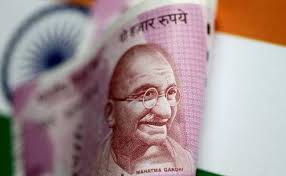In the realm of personal finance, Tax-Saving Fixed Deposits (FDS) are gaining traction among investors seeking stable returns and tax benefits. Financial institutions like SBI, HDFC Bank, ICICI Bank, Axis Bank, and Bank of Baroda have emerged as key players offering competitive interest rates on these deposits. According to recent data, these banks have been vying for the attention of investors looking for higher yields while also aiming to minimize their tax liabilities.
Tax-Saving Fixed Deposits – A Preferred Investment Option
Tax-saving fixed deposits, commonly known as FDS, are an attractive investment avenue for individuals aiming to save on taxes while earning a steady income. These deposits come with a lock-in period of five years, making them an appealing choice for those seeking stability in their investment portfolios.
Competitive Interest Rates Among Leading Banks
Several prominent banks in India, including State Bank of India (SBI), HDFC Bank, ICICI Bank, Axis Bank, and Bank of Baroda, have been engaged in a competitive pursuit to attract investors by offering lucrative interest rates on tax-saving fixed deposits. This strategic move aims to entice investors with higher returns, considering the prevailing market conditions and the need for tax-saving instruments.
Comparison of Interest Rates
In the current financial landscape, State Bank of India (SBI) is observed to be offering an interest rate of 5.40% on tax-saving fixed deposits, making it one of the prominent players in this domain. HDFC Bank is competing closely by providing an interest rate of 5.50%, slightly higher than its competitors. Meanwhile, ICICI Bank offers an interest rate of 5.35%, and Axis Bank and Bank of Baroda are providing rates of 5.50% and 5.30%, respectively.
Investor Decision-Making Process
The differential interest rates offered by these banks play a pivotal role in an investor’s decision-making process. Factors such as the credibility of the financial institution, the prevailing economic conditions, and the individual’s tax-saving goals significantly influence the choice of the bank for depositing funds.
Analyzing the Market Dynamics
The competitive landscape in the tax-saving fixed deposits market showcases the intense rivalry among banks to attract investors. The consistent efforts to offer competitive interest rates highlight the importance of these deposits in providing a balance between tax savings and lucrative returns.
Conclusion – Making Informed Investment Choices
With multiple options available in the market, investors are advised to carefully assess their financial objectives and risk appetite before choosing a tax-saving fixed deposit. Conducting thorough research on interest rates, terms, and conditions offered by different banks will empower individuals to make informed investment decisions aligned with their financial goals.
Striving for Competitive Edge
In the race for investors’ attention, leading banks in India are engaged in a battle of competitive interest rates, aiming to secure deposits in tax-saving fixed deposits. This intense rivalry emphasizes the significance of informed decision-making by investors to maximize returns while minimizing tax liabilities.























